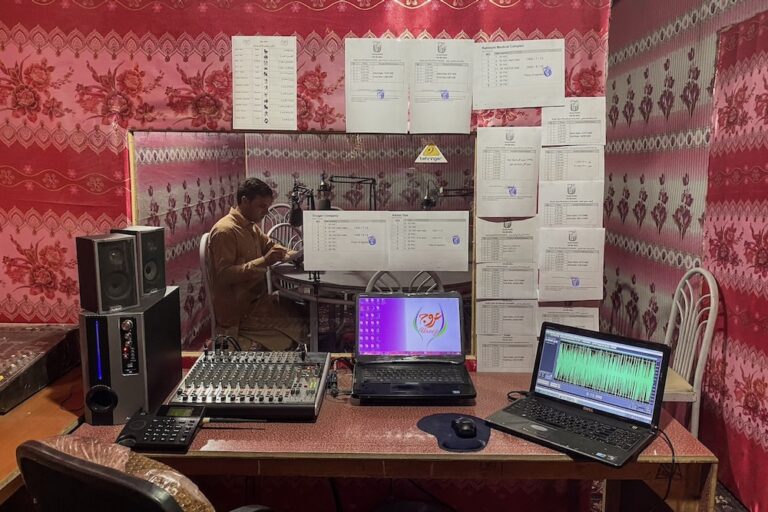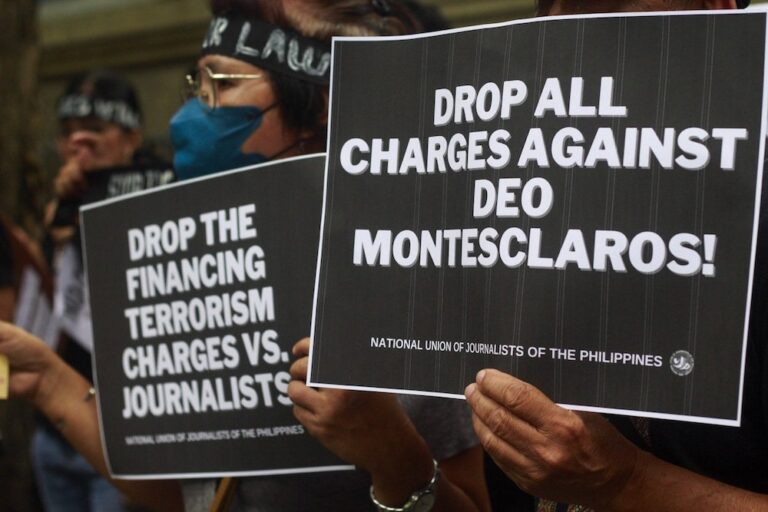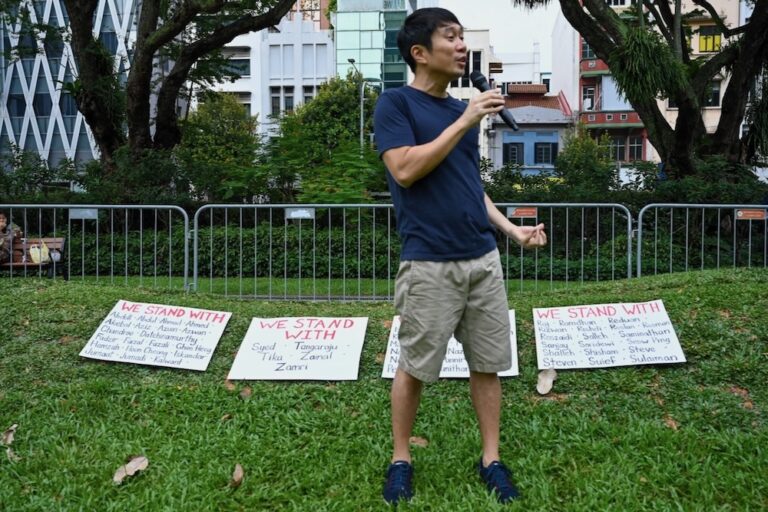The murderous attack on "Charlie Hebdo" must be seen primarily as an attack on press freedom and the diversity of thought, says SEAPA. And it should resonate with Southeast Asians, who are familiar with experiences of attacks to free expression and press freedom.
This statement was originally published on seapa.org on 13 January 2015.
The murderous attack on Charlie Hebdo last week must be seen primarily as an attack on press freedom and the diversity of thought.
Affiliations, in this case to terrorism and religious fundamentalism, are secondary. The important matter is that the attack sought to silence Charlie Hebdo and also those assigned to protect the magazine’s right to publish.
Some disagree with the deliberately provocative satirical style of Charlie Hebdo, but satire plays an important role in the mission of the press to help the public form opinions. Political cartoonists are at the forefront of public opinion making, where caricatures can at times be better and more effective at articulating opinions than the most eloquent column writers.
Let us be clear, SEAPA unequivocally condemns the mass murder of 12 persons – staff members of the French magazine Charlie Hebdo and two policemen assigned for their security. It is a senseless and vicious manifestation of intolerance of different views.
The murder of journalists – including, in this case, of satire cartoonists – is never an acceptable response even against perceived offensive content. Killing is the worst form of censorship.
In this case, the target is apparently the magazine known for its irreverent (some would say insulting) style and the attackers are violent religious fundamentalists. But in its essence, we view the incident as an attempt to shutter a differing view and impose a rigid, and singular interpretation of a belief.
In this equation, religion is but a variable. Censorship can be about politics, social institutions, race and gender. The problem is intolerance of differing ideas, of dissent.
It also does not have to be exclusively about violent ways of muzzling people and the press. It is more about the use of power for the purpose of suppressing speech.
The attackers of Charlie Hebdo immediately reaped the consequences of their heinous crime. In other contexts, it is not unheard of for similar crimes against expression to go unpunished.
Familiar
Viewed this way, the attack on Charlie Hebdo should resonate with Southeast Asians, who are familiar with experiences of attacks to free expression and press freedom.
Religious fundamentalists – not only Muslims but including Buddhists and Christians – also proliferate in the region, especially with the support of state officials acting on behalf of or trying to win political points from leaders of the faiths.
In Southeast Asia, religious intolerance has taken diverse forms: like when an Indonesian man was jailed for openly declaring his atheism, or in recent communal violence between majority and minority believers in Burma.
However, political fundamentalists are a problem in the region, too. And it may even be a bigger one, when one enjoys impunity for suppressing free expression.
Vietnam and Laos both have laws that criminalize criticism of the state. In the last few years, the former is known for cracking down and jailing bloggers who have found in the internet a platform to express suggestions for a more open political system or to criticize state officials hiding their corruption and abuse behind these laws.
In Malaysia, sedition is still a criminal act. The law prohibiting sedition has been used more frequently recently against opposition politicians, lawyers, activists and journalists for the flimsiest pronouncements.
Thailand has imposed a blanket prohibition of mainstream and social media criticism of the ruling military junta. Persons critical of the country’s monarchy are routinely jailed, and with more regularity since the 2014 coup. Dissidents are forced into exile, and the regime is finding ways to silence them even after they fled.
And while Brunei, like Laos, may have few known incidents related to free expression, society and the media are still living under a state of emergency imposed since 1962 that ensures control of the media.
As in the Charlie Hebdo incident, these are also forms of intolerance but of the political kind – institutionalizedd by state powers.
In all these countries, including Cambodia and Singapore, media censorship and self-censorship serve the interests of the state and political powers that be. Even at the local level, journalists in the Philippines are continually murdered for their work.
In most of the region, there may not be any overt violence against the media like that seen in Paris last week, but dissidents have to confront the power of the entire state machinery and its laws.
Part of the Solution
It may be relatively easy to crack down on groups that espouse violence to insist on their beliefs. It requires effective intelligence and information work by law enforcement to neutralize and disarm them.
However, confronting the ideas behind these movements will be much harder, just as problems of governance are perhaps even more complicated and demanding to tackle.
Finding lasting solutions to complex problems of governance, including terrorism, requires rational, principled and non-violent debates based on free expression. Only if all members of society are exposed to the free flow of information can narrow, petrified mindsets be changed and expanded to accept new, better ideas.
Likewise, accountability of state institutions and public officials is best ensured through unfettered access to public information and the openness of public officials, institutions and state ideologies to fair criticism. It is also not a legitimate excuse to begin imposing unfettered surveillance or repressive ‘anti-terror’ laws in the name of preventing similar incidents.
Freedom of expression does not mean being free to foment discriminatory, hateful or inciting speech. Free speech espouses diversity, which should not be seen as a threat but should instead be celebrated as the hallmark of a stable, sustainable society.
Freedom of expression is not the problem but is essential to finding solutions, including to problems that manifest in the likes of the Charlie Hebdo attack.


